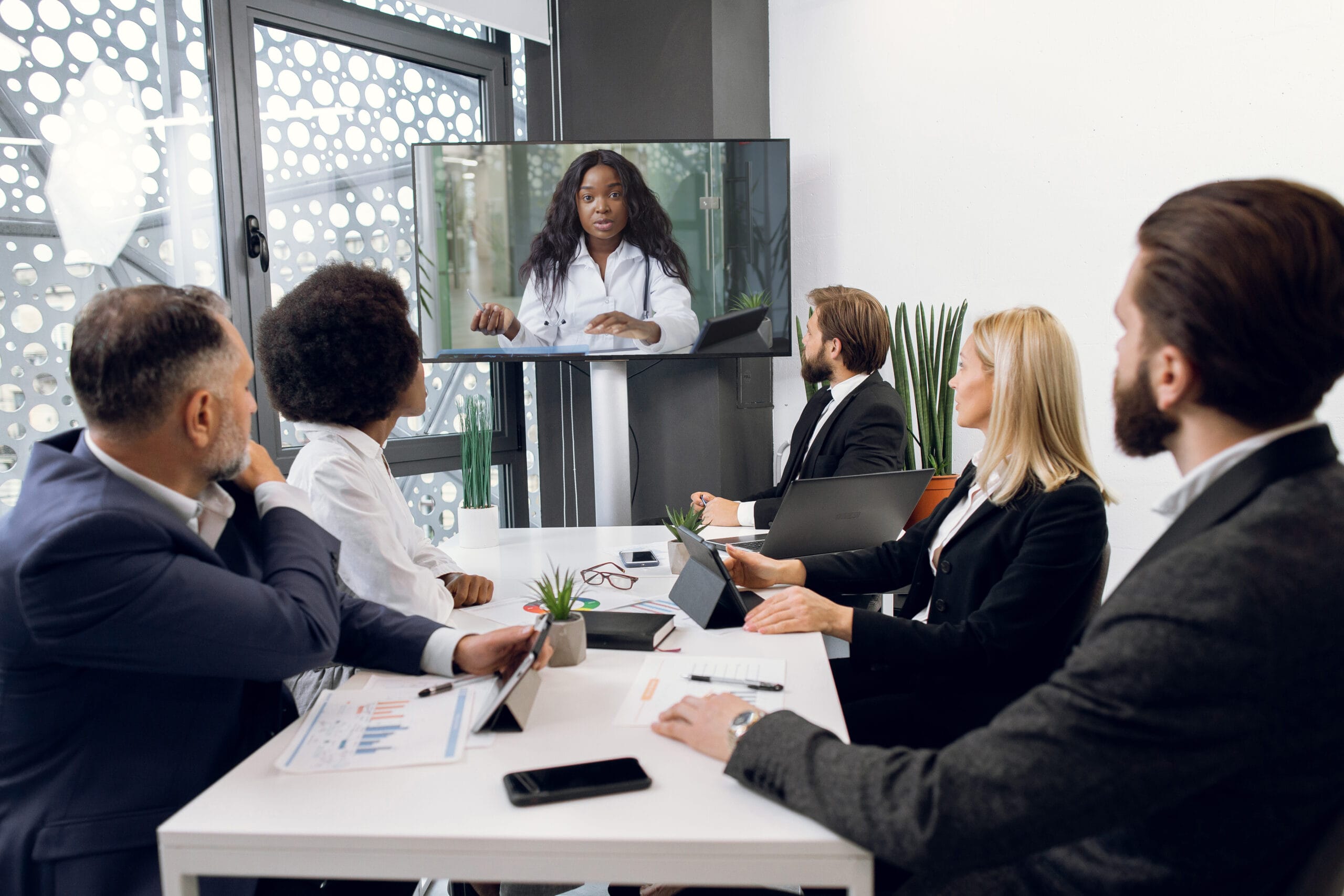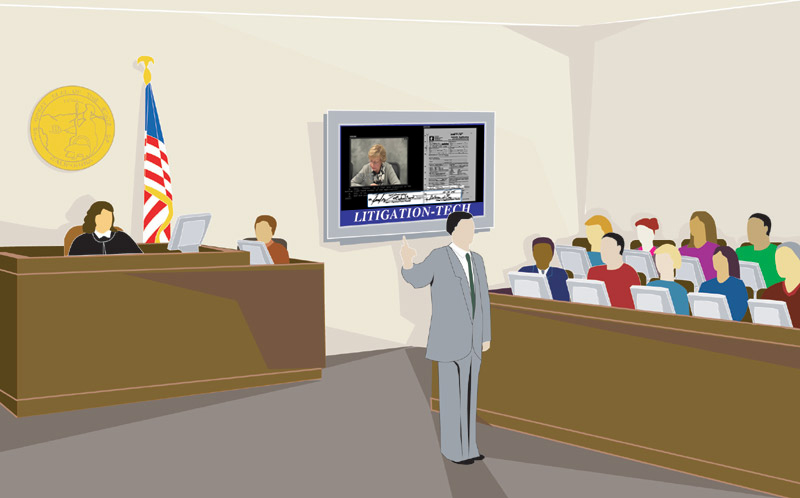How Trial Presentations Can Affect the Outcome of a Legal Case
How Trial Presentations Can Affect the Outcome of a Legal Case
Blog Article
Enhancing Your Legal Method With Specialist Test Presentations
In today's lawful landscape, the value of professional trial presentations can not be overstated. As attorneys browse the complexities of the courtroom, the capability to successfully share detailed arguments is extremely important. By transforming thick legal concepts right into appealing narratives, professionals can improve juror comprehension and retention. Integrating multimedia devices and narration methods can produce a compelling backdrop that not only notifies however also resonates psychologically with jurors. Nevertheless, the inquiry continues to be: what certain methods can attorneys employ to elevate their discussions and eventually influence test results?
Importance of Trial Presentations
Test discussions function as an essential aspect in the lawful process, effectively bridging the space between complicated legal disagreements and juror comprehension. The capacity to distill intricate lawful concepts right into available stories is necessary for jurors, who have to make educated decisions based on the proof presented. A well-crafted presentation not just clears up the instance but likewise boosts the persuasiveness of the debate, eventually affecting the jury's understanding.
In an age where focus periods are limited, the value of involving visuals and clear communication can not be overemphasized. Trial discussions offer to capture jurors' passion and maintain their focus, enabling for a deeper understanding of the truths and lawful problems handy. Additionally, they offer an organized structure that organizes the case, assisting in sensible circulation and comprehensibility.

Trick Components of Effective Presentations
An effective presentation in a court setting hinges on several vital parts that jointly enhance its impact. Attorneys have to distill intricate legal arguments into concise, easily absorbable factors to make certain jurors grasp the core issues.
Visual aids play a vital function also, as they can substantially strengthen crucial messages. Efficient use of exhibits, charts, and diagrams can make clear detailed information and emphasize vital truths. Furthermore, the presenter's shipment style is important; confident, engaging interaction promotes reliability and preserves jurors' interest.
Lastly, understanding the target market is vital. Customizing the presentation to the jurors' histories and worths can cultivate a connection that enhances receptivity to the debate. In recap, clarity, narrative framework, aesthetic aids, delivery design, and audience awareness are integral to crafting a reliable court discussion that resonates with jurors and sustains the overarching legal strategy.
Modern Technology in Trial Presentations
Modern court rooms progressively integrate technology to boost trial discussions, developing on the fundamental aspects of reliable communication developed through clear messaging and appealing narratives. The consolidation of audio-visual aids, such as high-definition projectors and interactive Visit This Link display screens, enables lawful teams to present proof in a much more engaging manner. This modern technology not only catches the court's attention however likewise helps with a better understanding of intricate information.

Digital devices, including presentation software program and digital exhibit administration systems, simplify the organization and retrieval of evidence (trial presentations). Lawyers can promptly reference files, photos, and video clips, ensuring that vital details is readily available throughout the trial. Furthermore, making use of computer animations and simulations can vividly illustrate key concepts, making them simpler for jurors to comprehend
In addition, courtroom technology promotes collaboration among lawyers, allowing real-time modifications to presentations based upon jury reactions or unforeseen advancements. The capability to adapt on the fly is important in preserving engagement and strengthening disagreements. As innovation remains to develop, its role in trial discussions will undoubtedly expand, providing cutting-edge means to communicate properly and persuasively in the search of justice.
Narration Methods for Impact
Reliable narration methods are vital in providing impactful trial discussions, as they change complicated legal debates right into relatable narratives. A well-crafted story astounds the audience, making it easier for jurors to understand and bear in mind crucial points.
To develop an engaging narrative, lawyers must concentrate on establishing a clear framework with a beginning, center, and end. The beginning needs to present the case context and its value, while the center elaborates on the core issues, weaving in proof and witness statements that sustain the disagreement. Effectively, the finishing ought to enhance the designated message, driving home the wanted result.
In addition, integrating psychological components can considerably boost the narrative's effect. By humanizing the instance, lawyers can evoke empathy, enabling jurors to attach personally with the truths offered. Utilizing vibrant images and stories can also help in highlighting complicated themes, making them much more concrete and remarkable.

Tips for Application in Court
Carrying out storytelling methods in court requires cautious preparation and execution to make sure that the story resonates with jurors. Begin by recognizing the core message of your case and straightening it with the emotional and navigate to this site valid elements that will involve the court. Create a clear and engaging narrative arc that consists of an introduction, an advancement of problem, and a resolution.
Utilize visual help to boost storytelling; exhibitions, timelines, and multimedia discussions can aid illustrate intricate concepts and keep juror interest. Practice your distribution, ensuring that body language, tone, and pacing follow the psychological weight of your tale.

Conclusion
To conclude, professional trial presentations play a crucial role in enhancing lawful methods by effectively interacting intricate disagreements to jurors. The assimilation of visual help, clear stories, and emotional storytelling fosters juror interaction and understanding. By leveraging technology and sticking article to key elements of effective presentations, attorneys can considerably boost the possibility of attaining favorable decisions. The execution of these strategies is vital for modern-day trial campaigning for, ultimately shaping the result of lawful proceedings - trial presentations.
Report this page